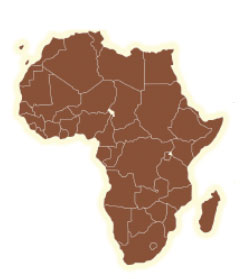The poorest continent is rising. Really.
Africa still evokes in the minds of many some mix of corruption, disease, war, and poverty—the Four Horsemen of Africa’s Apocalypse. Indeed, the economic crisis has fueled a whole new round of such worries. But the perpetual hand-wringing over the continent’s dreadful state misses a broader trend: Africa is rising, and it could emerge from the crisis stronger than most people think.
Africa’s renaissance is firstly economic. The continent’s inflation-adjusted GDP has roughly doubled from $130 billion in the 1980s to $300 billion in 2008, according to Goldman Sachs. The continent has had 7 percent annual growth in the 2000s, coming on the heels of 2 percent growth in the 1990s. The commodities boom contributed, but other under-recognized factors played a role.

iStockPhoto.com
While global forecasts for growth hover around just 0.5 percent, the International Monetary Fund is still forecasting a 3 percent growth rate across Africa—despite depressed commodity prices and decreased investment from China.
One foundation for growth is better governance. According to Transparency International, perceived corruption in Africa is declining. Today, Freedom House rates 33 governments in sub-Saharan Africa as either free or partly free; in 1980, that number was only 19.
Another is technology. Roughly one in three people in Africa now owns a mobile phone. In Ghana, a farmer can receive text messages reporting the price of yams and corn two towns over. He can then calculate how competitive he’ll be if he brings his harvest to market that day. In Kenya, residents of small villages can know when doctors are planning to visit their communities. In parts of West Africa, nurses are storing patients’ data on mobile phones.
A third shift is the quiet maturing of Africa’s financial system. Last January, a stock market opened on one floor of the tallest office building in Kigali, Rwanda. It is one of eight to open in the last decade; there are now 16 across Africa. About 500 stocks are traded on such exchanges; about 85 percent are for noncommodities. Banking and telecommunications are particularly strong.
Today, more African financial data are being tracked and made accessible. There are now 17 countries with credit ratings. Such ratings open doors to the private capital that makes economies hum. In assigning ratings, international credit-rating agencies primarily consider two things: a borrower’s willingness and ability to pay back loans. Countries that have jumped through the hoops to obtain ratings have taken steps toward more accountable governance.
Africa’s newfound transparency, technology, and growing financial maturity do not have to be erased by today’s financial slump. The continent may even be poised to benefit from the global economic downturn.
For the past 50 years, African countries have relied heavily on foreign aid—arguably the single most important contributor to the continent’s inability to realize its potential. Meanwhile, many African rulers have skirted accountability.
With the West shaken by its own economic problems, foreign aid’s destructive impact is likely to diminish. Italy has already slashed its aid budget by 50 percent. This is a good thing. More African leaders will have to figure out how to govern without the inflow of easy money to backstop them. Necessity will force them to innovate.





